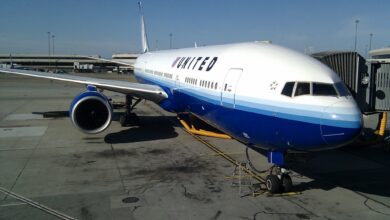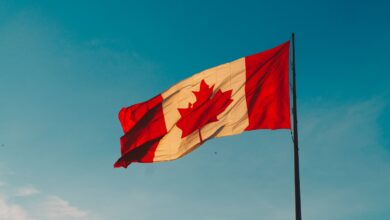USA Visa Requirements for International Students in 2024
The United States has always been a top destination for international students seeking quality education and global exposure. With its world-renowned universities and diverse cultural experiences, the U.S. offers unparalleled opportunities for academic and personal growth. For aspiring students, understanding the visa requirements is a crucial step in the journey. This comprehensive guide will outline the USA visa requirements for international students in 2024, ensuring a smooth application process.
Types of Student Visas for the United States
International students applying to U.S. universities typically need one of the following visa types, depending on their purpose of study:
- F-1 Visa: The most common student visa, this is required for academic programs at U.S. colleges, universities, high schools, or language training institutions.
- J-1 Visa: This visa is for exchange visitors participating in cultural exchange programs or internships sponsored by an accredited institution.
- M-1 Visa: Intended for vocational or technical programs, this visa is less common but essential for non-academic training.
Key Requirements for U.S. Student Visas in 2024
International students must meet several requirements to qualify for a U.S. student visa. Understanding and preparing these documents and details in advance can significantly improve the chances of approval.
1. Acceptance to a SEVP-Certified Institution
Applicants must first be accepted by a school accredited by the Student and Exchange Visitor Program (SEVP). The institution will issue a Form I-20 (for F-1 or M-1 visas) or a Form DS-2019 (for J-1 visas). These forms are crucial for initiating the visa application process.
2. Paying the SEVIS Fee
The Student and Exchange Visitor Information System (SEVIS) is an online database used to track international students. Applicants are required to pay a SEVIS I-901 fee before proceeding with their visa application. The current fee for F-1 and M-1 visa applicants is $350, while J-1 visa applicants pay $220.
3. Filing the DS-160 Form
All international students must complete the DS-160 online non-immigrant visa application form. This form collects personal, educational, and travel details and is submitted electronically. Upon completion, applicants receive a confirmation page with a barcode that must be presented during the visa interview.
4. Valid Passport
A valid passport is mandatory for all international students applying for a U.S. visa. The passport should remain valid for at least six months beyond the intended period of stay in the United States.
5. Paying the Visa Application Fee
The visa application fee, currently set at $185, is non-refundable. Students must keep the payment receipt as proof, as it will be required during the application process.
6. Scheduling a Visa Interview
Students must schedule an interview at a U.S. Embassy or Consulate in their home country. The wait times for interviews vary depending on the location, so it is advisable to book early to avoid delays.
Preparing for the Visa Interview
The visa interview is a critical step in the application process, as it determines whether the student is granted a visa. Proper preparation can make a significant difference in the outcome.
Documents Required for the Visa Interview
- Form I-20 or DS-2019 issued by the SEVP-certified institution.
- Passport valid for at least six months beyond the planned stay.
- DS-160 confirmation page with barcode.
- SEVIS fee receipt.
- Proof of financial resources, such as bank statements, scholarship letters, or sponsorship documentation.
- Academic transcripts, test scores (such as TOEFL, IELTS, or GRE), and any letters of admission.
- Proof of intent to return to the home country after completing studies.
Tips for a Successful Interview
- Be Honest and Clear: Provide accurate answers to the officer’s questions. Misrepresentation can lead to denial.
- Demonstrate Strong Ties to Your Home Country: Show that you intend to return after completing your studies, such as family ties, job offers, or property ownership.
- Show Financial Stability: Present proof that you can afford tuition and living expenses during your stay.
- Understand Your Academic Goals: Be prepared to explain why you chose your program and institution.
- Dress Professionally: A neat appearance can leave a positive impression.
Financial Requirements for International Students
Demonstrating financial ability to cover tuition, living expenses, and other costs is a key aspect of the visa application process. Students are typically required to provide:
- Bank Statements: Recent statements showing sufficient funds to cover at least one year of expenses.
- Sponsorship Letters: If a family member or sponsor is covering costs, they must provide a letter of support and proof of financial capacity.
- Scholarship Letters: Documentation of any scholarships, grants, or financial aid awarded by the university or other organizations.
Medical Insurance Requirements
Although not mandatory for all visa types, having medical insurance is highly recommended. For J-1 visa holders, health insurance that meets specific coverage levels is a requirement. F-1 and M-1 visa holders should consider purchasing insurance to protect against high medical costs in the U.S.
Processing Times for U.S. Student Visas
Processing times for U.S. student visas can vary depending on the applicant’s country and the time of year. Typically, it takes between two weeks and a few months to complete the process. Applicants are advised to apply well in advance of their program start date to avoid delays.
Common Reasons for Visa Denials
- Insufficient Financial Resources: Failure to demonstrate the ability to cover expenses can result in denial.
- Lack of Ties to Home Country: If the officer believes the applicant may not return after completing studies, the visa may be denied.
- Incomplete Documentation: Missing or inaccurate documents can lead to rejection.
- Inconsistencies in Responses: Providing contradictory information during the interview can harm your chances.
Maintaining Status as an International Student
Once the visa is approved, maintaining student status is essential for the duration of the program. Key responsibilities include:
- Full-Time Enrollment: Students must remain enrolled in a full-time course load each semester.
- SEVIS Updates: Notify the university’s Designated School Official (DSO) of any changes in address, program, or personal circumstances.
- Employment Restrictions: Work is limited to on-campus jobs, with off-campus employment requiring authorization.
- Timely Program Completion: Ensure that studies are completed within the duration specified on the I-20 or DS-2019.



